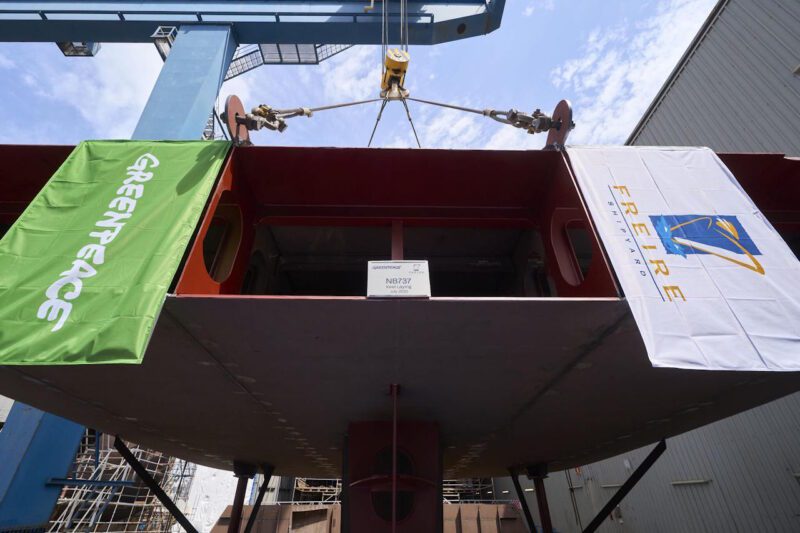The new flagship vessel for environmental campaign group Greenpeace will feature a 3 megawatt-hour (MWh) battery from marine energy storage firm AYK Energy.
The new 75-metre vessel, under construction in Spain and due for delivery in 2027, is planned to be the most environmentally advanced ship in Greenpeace International’s fleet, and will incorporate a hybrid propulsion system that will include hydrogen fuel cells and engines capable of using methanol as fuel powering two electric drive propellers, as well as 1,746-square-metres of sails.
Solar panels and battery packs from AYK will provide additional onboard power.
“We are extremely proud to be supporting this transformative Greenpeace International project alongside our integration partner,” said Chris Kruger, AYK Energy founder.
“It’s a flagship vessel not only for Greenpeace International, but for the future of low-emission shipping. This deal reflects growing recognition of AYK’s expertise in safe, high-performance marine batteries. AYK’s batteries will be critical to enabling silent, zero-emissions operations during sensitive campaigns and operations in emissions-restricted areas.”
The vessel, under construction at the Freire Shipyard in Spain, has been designed to be as close to completely free from fossil fuels as possible at launch, and capable of transitioning to 100 per cent green power as soon as technically possible.
Freire Shipyard laid the keel for the new Greenpeace flagship in July.
AYK Energy will supply 3 MWh worth of its Aries+ battery pack, which secured type approval from Norwegian classification society DNV earlier this year.
“The construction of this sailing vessel, which will become the organisation’s new icon, demonstrates that it is possible to expand maritime capacity while drastically reducing the carbon footprint,” said Fabien Rondal, deputy director of Greenpeace International’s international programme.
“This new vessel, built by Freire Shipyard in Vigo to the highest environmental, sustainability and human rights standards, represents the cutting edge of environmentally responsible shipbuilding.”
Joshua S. Hill is a Melbourne-based journalist who has been writing about climate change, clean technology, and electric vehicles for over 15 years. He has been reporting on electric vehicles and clean technologies for Renew Economy and The Driven since 2012. His preferred mode of transport is his feet.

